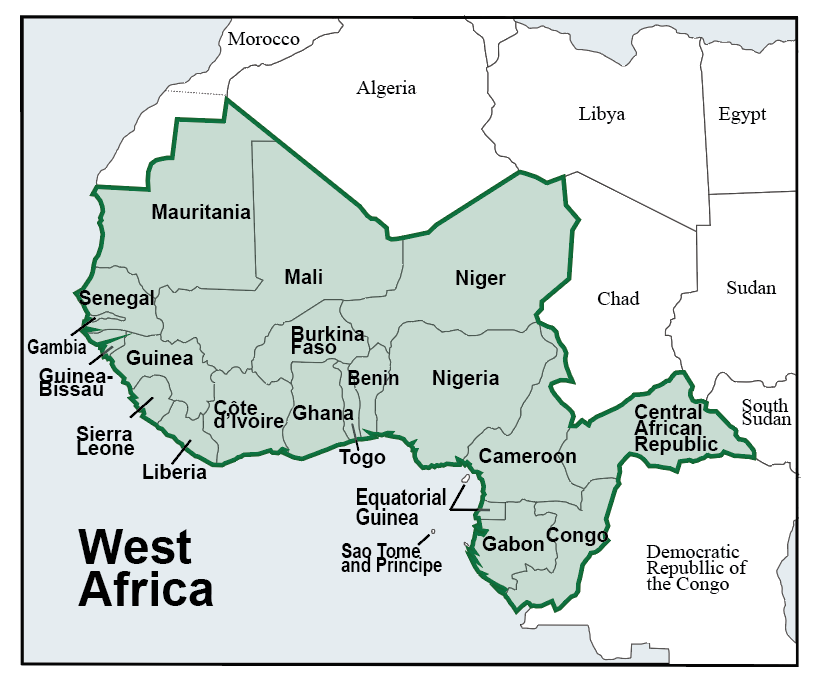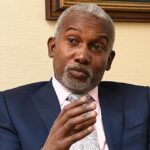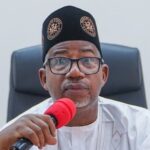Most Nigerians are used to queuing up to see their medical doctors. That of course refers to the majority of our countrymen and women who pay out of their pocket for every medical expense. Usually, the doctor sits in his/her consulting room to attend to the patients, one after the other. Recently some of these patients watched on television screens, perhaps with bewilderment, as their doctors joined long queues to attend job interviews.
As Nigerians of all walks of life have known, those who interviewed our doctors were recruiters or headhunters who came from abroad, some from Saudi Arabia. Yes, Saudi Arabia is one of the many countries that have discovered value in our doctors that our dear country does not seem to have seen. So, these countries are offering them jobs at much higher wage. Being rational economic entities, these doctors obviously prefer higher wages to less, given also that the general conditions of service in the new places are expected to be better than they have had here.
- PODCAST: Is It Possible To Build Walls Along Nigerian Borders?
- Nigeria set to implement $750m W/Bank COVID-19 intervention
Consequently, the doctors are leaving in droves. So are the nurses, the other professionals that complement the work of doctors.
Besides Saudi Arabia, other known destinations of the fleeing medical personnel include the United Kingdom, the United States, Canada, among others.
Not all the departures of these professionals are marked with drama, as some choose to leave quietly. So estimates of the number of doctors that leave Nigeria each year vary, but one estimate says that as many as 2,000 trained doctors depart Nigeria annually in search of something better elsewhere.
Other professionals are also leaving, in some informal ways. These days, there is hardly anyone that does not know someone who knows someone whose relation has left the country recently.
Effectively, all these professionals are simply transferring Nigeria’s social benefits to other nations, for obviously no fault of theirs.
Nothing makes migration bad, especially in this era of globalisation. Just as our people move from the rural areas into the urban centres, so do people from one corner of the globe to the other. Migration has become an economic diversification policy designed to enable countries’ nationals to earn foreign currency, part of which they can remit home.
This is the origin of the concept of Remittance, which has become a key element in developing countries’ earnings tables. There are countries that deliberately encourage migration by their citizens. Cuba is an example. It has a state policy of training medical doctors and exporting them to the rest of the world, including the United States. Such doctors are nationalists who believe in remitting money back home. Other countries in this category include India and the Philippines, both of which boast of large numbers of their citizens living abroad and remitting billions of dollars home every year.
For Nigeria, remittances by our professional out there have been recognised as one of the highest among African countries, rising by more than three times from about $5.66b in 2010 to $17.57b in 2019.
Even so, there appears to be a difference between those who emigrated long ago who still remit funds back home. For them, the movement out of the country was more of a natural course of action in pursuit of higher dreams than an escape from a choking enclave, which Nigeria has become to many.
That has changed with the current batch of our compatriots leaving now. For them, leaving the shores of Nigeria is a protest ostensibly against a system that they feel has treated them unjustly and unfairly. For many, it is a protest against a system that threw them into the streets, without jobs and with no sense of belonging. When they leave, some of them tend to burn the bridge. So they do not want to have anything to do with the country again. From those people, remittances are not rising as they used to.
The amazing thing however is that once these Nigerians arrive at their destinations, whether the UK, United States, Canada, or wherever, they become productive, displaying their creativity. This explains some of the shifts in immigration policies that some of these countries have announced in recent times, all aimed at attracting more immigrants from Nigeria.
So, Nigeria continues to lose some of its social benefits. Meanwhile, at home here, it is becoming more difficult for companies to get good hands to work because the country is losing some of its best. On the other hand, if the stories making the rounds in the media are true, it means that Nigeria is actually receiving foreign bandits who are contributing to the brigandage in the country. The stories are everywhere that the bandits terrorising our nation are foreigners.
So, what we have as a country is a situation where we are losing some of our best and brightest in the medical and other fields, to other countries, and at the same time, we are attracting people who come into our country to kill, maim, steal, and pillage the land.
Indeed, if the above is true, it is also possible that the people we have mistakenly allowed in have become part of the challenges facing our forex market. If those who kidnap our people, demand and receive millions of naira in ransom are foreigners, it stands to reason that they must be finding ways to change the naira into foreign currencies which they in turn ferry out of the country to wherever they came from.
The government faces a confidence challenge. It needs to build people’s confidence in this economy, but confidence takes time to grow. It grows like a coconut tree but falls like a coconut. The government must show people reasons to believe in the country and that there is something in it for them.
The coconut tree takes about five years to grow, but its nut falls within seconds to the ground. That’s what confidence is like.
The government must embark on policies that boost people’s confidence in the system. This will require consistency and focus on building an economy that has a space for all.
People on their part should appreciate the fact that confidence in the economy will take time to grow.

 Join Daily Trust WhatsApp Community For Quick Access To News and Happenings Around You.
Join Daily Trust WhatsApp Community For Quick Access To News and Happenings Around You.


